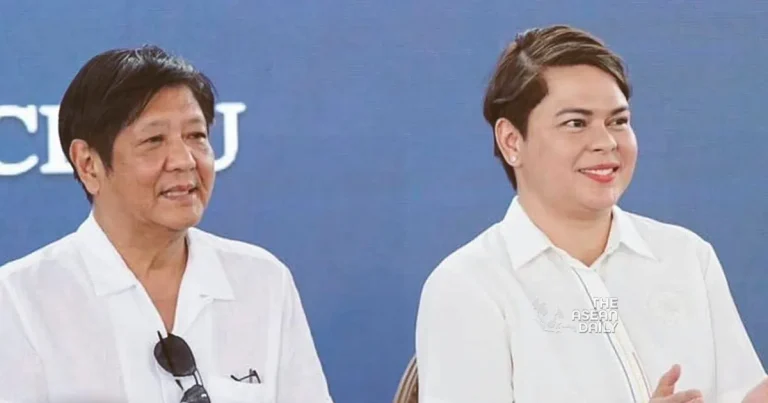16-1-2025 (MANILA) In a notable development within the Philippine government’s highest echelons, Malacañang Palace has reaffirmed President Ferdinand Marcos Jr’s unchanged position regarding Vice President Sara Duterte’s potential impeachment, despite conflicting views expressed by Chief Presidential Legal Counsel Juan Ponce Enrile.
The Palace’s clarification came after Enrile took to social media to voice concerns about the recent mass gathering organised by the influential religious group Iglesia Ni Cristo (INC). Executive Secretary Lucas Bersamin emphasised that whilst Enrile’s perspective is valued within the administration’s decision-making process, it has not swayed the President’s established position on the matter.
In an unprecedented break from the administration’s unified front, Enrile warned of potential “detrimental precedents” should the nation yield to what he perceived as implications stemming from INC’s recent “National Rally for Peace”. The rally, which drew significant attention, was widely interpreted as a show of support for the administration’s stance against VP Duterte’s impeachment, though INC maintains it was simply advocating for national harmony.
Bersamin sought to contextualise the apparent discord, stating, “The President has consistently fostered an environment where Cabinet members can freely express their views. This approach enriches our policymaking process through the convergence of diverse perspectives and expertise.”
Enrile’s public statement raised fundamental constitutional questions about the relationship between religious influence and governmental processes. “We must consider whether we’re prepared to compromise the rule of law for any individual or group,” he wrote, emphasising that impeachment represents a constitutional mechanism rather than a criminal proceeding.
The veteran legal counsel further elaborated that impeachment proceedings, while serious, do not automatically result in incarceration. He expressed particular concern about the precedent that might be set by allowing religious gatherings to influence constitutional processes.




